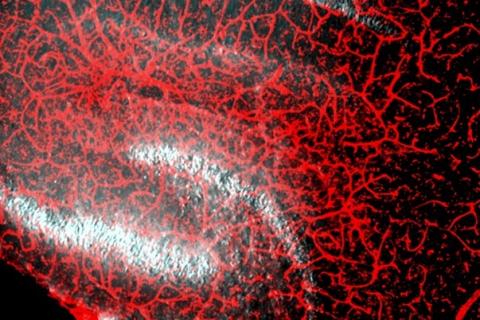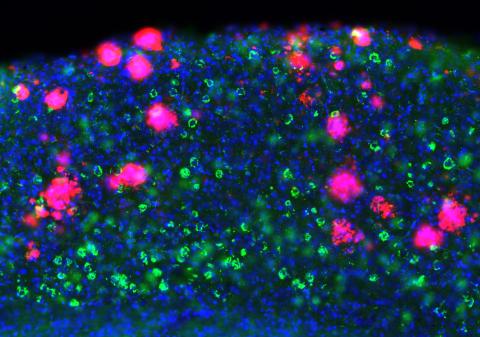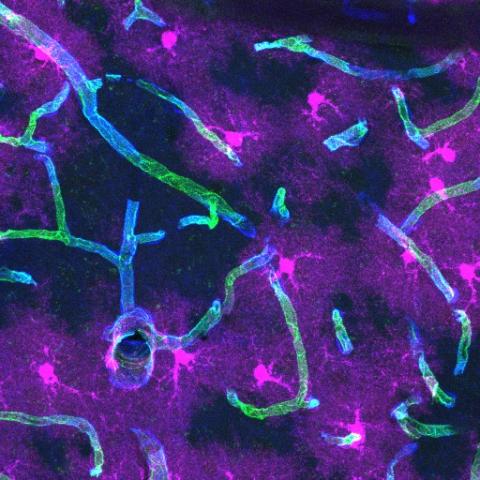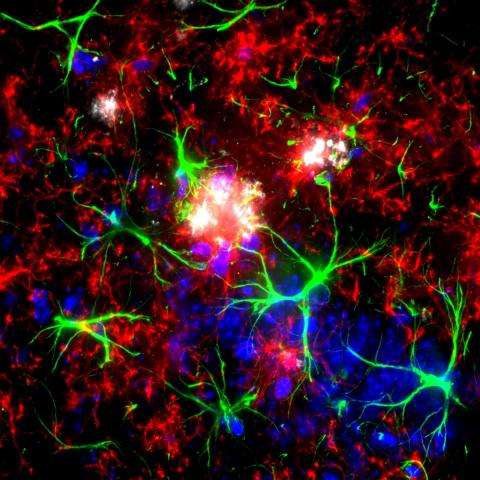Ageing is the single biggest risk factor for developing dementia. As we grow older, our bodies and brains undergo natural changes that can make us more susceptible to these conditions. However, not everyone experiences cognitive decline at the same rate or to the same extent, suggesting that the ageing process itself holds important clues for understanding and potentially preventing dementia.
In the UK, we are facing the challenges of an ageing population. By 2050, it's projected that one in four people in the UK will be aged 65 years or over, up from approximately one in five in 2019. This demographic shift has significant implications for the prevalence of dementia. Currently, there are nearly one million people living with dementia in the UK, and this number is expected to rise to 1.4 million by 2040. The economic impact is substantial, with the current cost of dementia to the UK economy estimated at £42 billion per year, a figure that is set to rise to £90bn by 2040.
In the brain, ageing is associated with various changes, including shrinkage of certain regions, reduced blood flow, and alterations in the connections between brain cells. These changes can affect memory, thinking speed, and other cognitive functions. Additionally, the ageing brain becomes more vulnerable to damage from factors like inflammation, oxidative stress, and the accumulation of abnormal proteins – all of which are implicated in various forms of dementia.
At the UK Dementia Research Institute, we are investigating the complex relationship between ageing and neurodegenerative conditions. Our researchers are exploring how normal ageing processes intersect with disease mechanisms, seeking to understand why some individuals remain cognitively healthy into old age while others develop dementia. By unravelling the biological underpinnings of brain ageing, we aim to identify potential targets for interventions that could slow or prevent age-related cognitive decline and reduce the risk of dementia. This research is crucial not only for improving individual health outcomes but also for addressing the growing societal and economic challenges posed by an ageing population, and achieving our vision of healthy brain ageing for all.
people in the UK will be aged 65 or over by 2050
people in the UK will be living with dementia by 2040

Latest
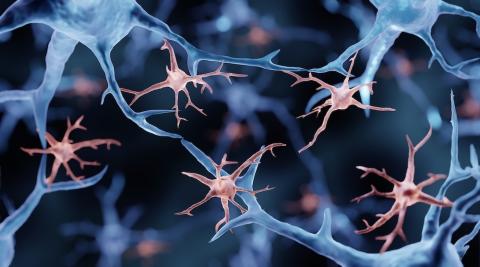
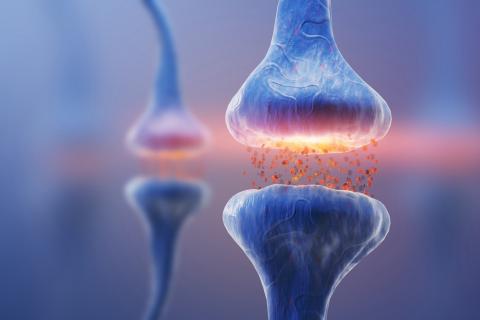
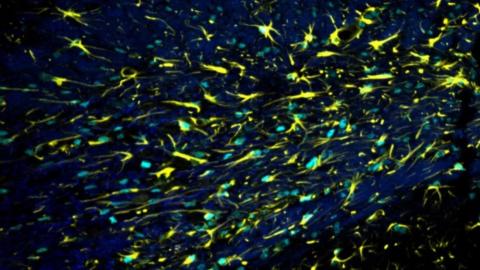
A deeper dive
Ageing is a multifaceted process characterized by the progressive accumulation of molecular and cellular damage, leading to a gradual decline in physiological function. In the context of neurodegenerative diseases, understanding the mechanisms of brain ageing is crucial for developing effective prevention and treatment strategies.
Several key hallmarks of ageing have been identified as relevant to neurodegeneration:
- Cellular senescence: As cells age, some enter a state of senescence, ceasing to divide and potentially releasing harmful inflammatory factors. The accumulation of senescent cells in the brain may contribute to neuroinflammation and cognitive decline.
- Mitochondrial dysfunction: Ageing is associated with decreased mitochondrial function, leading to reduced energy production and increased oxidative stress. This can be particularly detrimental to neurons, which have high energy demands.
- Proteostasis: The ability to maintain proper protein folding, degradation, and quality control declines with age. This can lead to the accumulation of misfolded proteins, a hallmark of many neurodegenerative diseases.
- Stem cell exhaustion: The capacity for tissue repair and regeneration diminishes with age, potentially limiting the brain's ability to compensate for neuronal loss.
- Epigenetic alterations: Changes in gene expression patterns occur with ageing, potentially affecting neuronal function and resilience.
- Chronic inflammation: Low-grade, chronic inflammation increases with age, a phenomenon termed "inflammaging." This may contribute to neurodegeneration through various mechanisms.
- Vascular changes: Age-related alterations in cerebral blood flow and blood-brain barrier integrity can impact brain health and contribute to cognitive decline.

Ageing research at the UK DRI
At the UK DRI, we are addressing several key questions related to ageing and neurodegeneration:
- How do age-related changes in synaptic function and plasticity contribute to cognitive decline?
(Spires-Jones, Grant, Jackson, Opazo, Gan, Barnes)
- What are the molecular mechanisms underpinning ageing and cellular senescence
(Balmus, McEwan, Bartels, Avezov, Mizielinska)
- What role does ageing and cellular senescence play in driving neuroinflammation and neurodegeneration?
(De Strooper, Priller, Hong, McColl)
- What mechanisms underlie the selective vulnerability of certain brain regions and cell types to age-related neurodegeneration?
(Hardy, De Strooper, Duff)
- How do vascular changes associated with ageing contribute to cognitive impairment and dementia risk?
(Wardlaw, Montagne, Diaz-Castro)
- Can we identify molecular signatures of brain ageing that predict susceptibility to neurodegenerative diseases?
(Skene, Marzi, Nott)
- What factors contribute to cognitive resilience in some individuals, allowing them to maintain cognitive function despite advanced age?
(Wiseman, Opazo, Spires-Jones)
By integrating findings across these areas, we aim to develop a comprehensive understanding of how ageing processes interact with genetic and environmental risk factors to influence the onset and progression of neurodegenerative diseases. This knowledge will be crucial for identifying novel therapeutic targets and developing interventions that can promote healthy brain ageing and reduce the burden of dementia.

